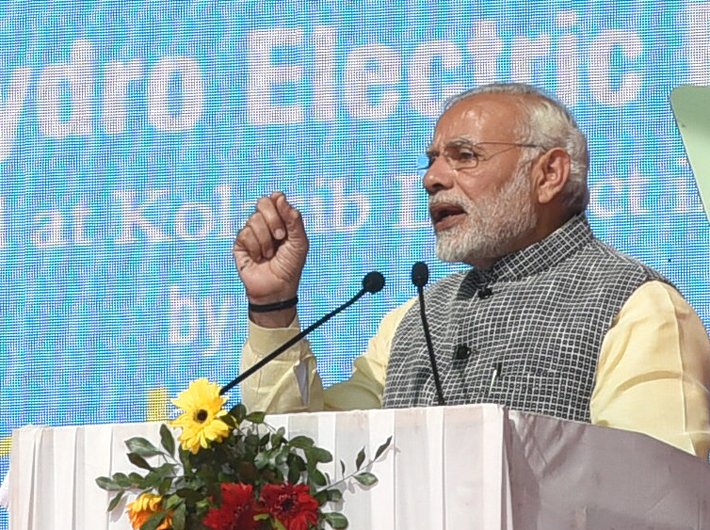More often, a colloquial proverb sums up a complex political situation more aptly than scholarly formulations. If one looks at the Gujarat verdict, nothing summarises it more perfectly than the adage: “Jo jita wohi Sikandar (the victor is the one who has won).”
Of course, there is no denying that the victor in Gujarat came quite close to his Waterloo this time. Gujarat has given jitters to the BJP leadership as the party has been able to retain the state only by the skin of its teeth. That was hardly an expectation for the party whose president proudly proclaimed that he would be content with nothing less than three-fourth majority in the state assembly. But what he got was just to scrape through the half-way mark of 92 in the 182-member legislative assembly.
Though the party has a cause to celebrate in the Himachal Pradesh victory, all eyes were rightly on Gujarat – the home state of Prime Minister Narendra Modi, also of BJP president Amit Shah, and the political pocket borough of Hindutva. For over two decades, this citadel of the BJP remained invulnerable to persistent attacks of the rivals.
And apparently there was every reason this time to let the BJP leadership feel they are invincible in Gujarat. Modi’s popularity continues to soar after his three years of prime ministership. The massive and historic win in Uttar Pradesh was an indication of Modi’s unquestioned acceptance among the masses. The party has established its bases in the eastern India and made deep forays in the northeastern states. After coming to power with a decisive victory in 2014, the BJP under Modi’s leadership has expanded its footprint to include areas and social groups that it had not been able to connect with for long. Given all this, Gujarat should have been an easy and big win.
The only factor that nagged the BJP’s Gujarat leadership was Modi’s absence in Gandhinagar. This was the first election after his eventful 13 years in the state. But, decidedly, that deficit was more than adequately filled by Modi’s larger-than-life presence on the national stage. Not without reason, the BJP’s state unit leadership was cocksure about winning the state hands down. In any case, the only challenge was from a weak Congress leadership in the form of the incoming party president Rahul Gandhi.
That assurance bordering to the point of hubris was quite misplaced.
Though it has won, the BJP’s final figure leaves much scope for introspection. The first lesson it should draw from today’s results is that arrogance is a bad substitute for good governance. Across the state, right from party workers to traders, industrialists and professionals, there was a massive upsurge of anger against “the arrogant conduct” of the BJP leadership. That the BJP’s state leadership is quite impervious to people’s plight was a common refrain among voters.
The second lesson is that reliance on the bureaucracy for political delivery is bad tactics. Modi relied upon the state bureaucracy as a tool to achieve governance objectives, but Modi’s successors relied on the bureaucracy for political objectives. Neither Anandiben Patel nor Vijay Rupani could display the dexterity to match Modi’s ability to contain the bureaucracy from its wayward behaviour. That is the precise reason why corruption became a major issue in these elections.
Even at the central level, the finance ministry drew major flak for its reluctance to attend to problems faced by people in Gujarat on account of the GST implementation. In Surat, Vadodara and even Rajkot, there was widespread resentment against politicians and officials of Gujarat cadre for implementing the GST in a most ham-handed manner. “Even Hasmukh Adhia and Arun Jaitley listened to our complaints only in a most cavalier manner,” complained a group of textile traders in Surat. Even a casual conversation with people in Gujarat would elicit a unique response on the lines that “They (BJP) must be taught a lesson”.
Would that mean a defeat for the BJP, then? “Not at all, they must be stopped from becoming authoritarian,” was the general refrain. There is a hardly any doubt that the anger was so palpable that the prime minister took it upon himself to neutralize it by equating the election to Gujarat’s asmita (Gujarat’s pride). Just before the polls, it seems, people realized that a defeat of the BJP would effectively ruin Modi’s political prospects. Hence, they made a fine distinction between Modi and the BJP and voted for the former while rejecting the latter.
At the same time it would be naïve to interpret the Gujarat results as a vindication of Rahul Gandhi’s leadership. Far from it, the results show that the Congress failed to capitalize on massive anger that had been built against the BJP in a crucial state where its victory would have had created a tectonic shift in the country’s politics. Instead of consolidating its traditional support base, it allowed itself to be guided by lumpenised and anarchic tendencies represented by Hardik Patel, Jignesh Mevani and Alpesh Thakore and forge an incompatible social alliance whose longevity is in doubt. At the same time, people of Gujarat outright rejected regional Congress leaders like Bharatsinh Solanki, Shaktisinh Gohil and Arjun Modhwadia who they don’t see as alternative to the BJP’s state leaders.
Of course, the results are bound to draw a picture of tense future: it may prompt the BJP to introspect and attempt course correction before 2019. At the same time, They may prove a starting point for an alternative political discourse should Rahul Gandhi draw the right lessons and develop a robust organizational structure and an organic leadership within the party. The Gujarat election may mark the beginning of a big battle ahead.
[This articles also appears on FirstPost.com]

